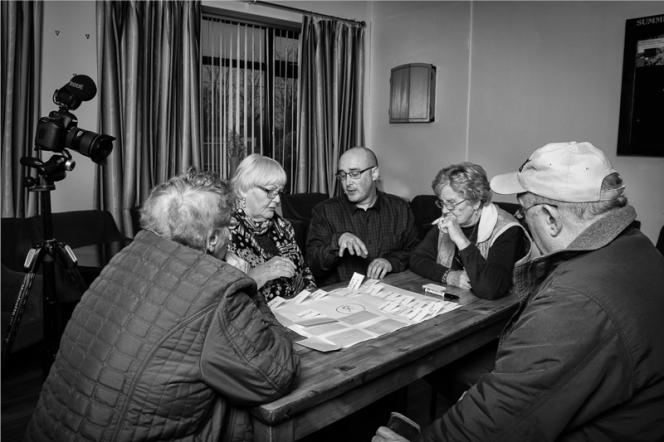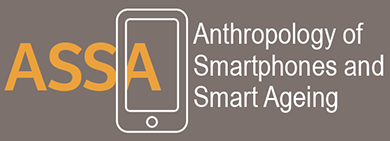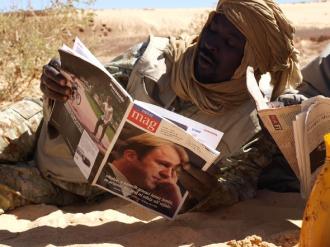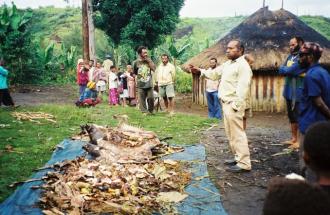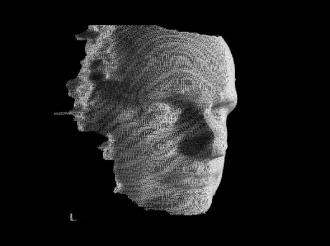Researchers: Prof. David Prendergast & Dr Jamie Saris
SHAPES (Smart and Health Ageing through People Engaging in Supportive Systems) is an Innovation Action funded by the European Union’s Horizon 2020 programme involving a total of 14 European countries. It aims at creating an integrated IT platform that will bring together a wide range of digital solutions focused on improving the health, wellbeing, and independence of people as they get older.
Building on ethnographic fieldwork with older adults around Europe, this interoperable Platform will offer a network of large-scale interconnected digital services and products, that will empower older adults, families and caregivers, to solve real and meaningful problems. These solutions are intended for older adults facing a temporary or permanent reduction of functionality and capabilities, whether physical or psychological, but also to help those who are healthy to maintain their health and well-being for as long as possible.
SHAPES will foster European industry and policymakers to find a means to successfully face the challenges of an aging population. In addition, it will push towards the development of value-based business models to open and scale-up the market for innovative digital health and care solutions and services, supporting and extending healthy and independent living. The programme will also impact on the long-term sustainability of health and care systems in Europe, in which current 25% of the population is represented by older people, according to the United Nations (UN).
The project is a collaboration between 36 organisations, led by the ALL (Assisting Living & Learning) Institute, University of Maynooth, Ireland. The project will last 48 months (from November 2019 to October 2023) and will involve a range of activities that go from the creation of the digital platform itself, to the development and improvement of 15 technological and social solutions aimed at supporting older people. These solutions will be tested by more than 2,000 older adults across the countries involved in SHAPES, so as to ensure that they are meaningful and suitable for users from different countries and cultures. SHAPES provides for the collection and analysis of participants’ health, environmental and lifestyle experiences, in order to identify needs and provide personalized solutions, and in a way that upholds data protection requirements and ensures the user’s trust in the overall approach.
SHAPES will also involve hundreds of professionals from different areas of knowledge and practice, including health and social care, government, academia and industry. With an investment of almost 21 million Euro, SHAPES is a broad initiative to encompass the needs and expectations of older adults, a population group that, according to the United Nations, grows 3% on average per year.
An energetic and focused communication and dissemination plan will be used to promote the visibility of the project’s results among different stakeholders.
SHAPES’s member countries: Ireland, Belgium, Greece, Czech Republic, Cyprus, Spain, France, Italy, Portugal, United Kingdom, Sweden, Norway, Finland, and Germany.
Overall project value: EUR 20,944,318.75.
Researcher: Dr Pauline Garvey
The Anthropology of Smartphones and Smart Ageing is a multi-sited research project based at University College London Anthropology, funded primarily by the European Research Council.
The project employs a team of ten anthropologists conducting simultaneous 16-month ethnographies in Ireland, Italy, Cameroon, Uganda, Brazil, Chile, East Jerusalem, China, and Japan. Launched in October 2017, with fieldwork beginning in February 2018, the aim of this collaborative five-year project is to conduct comparative analysis of the impact of the smartphone on the experience of mid-life around the world and consider the implications for mHealth.
https://www.ucl.ac.uk/anthropology/assa/
HIV is mutating. Today, as anti-retroviral therapy (ART) is made available to larger numbers of persons afflicted with HIV, the biological and social consequences of infection are being remade.
Researcher: Thomas Strong
HIV is mutating. Today, as anti-retroviral therapy (ART) is made available to larger numbers of persons afflicted with HIV, the biological and social consequences of infection are being remade. As unprecendented financial resources are devoted to extending the global reach of ART and to identifying and overcoming local challenges in ART distribution and access, it becomes ever more important to describe and analyze the social ramifications of lifelong treatment for HIV. Care-givers, advocates, and the scholars who study them are often concerned with clinical issues such as compliance and larger questions such as the political economy of drug distribution. For example, according to UNAIDS, in East Africa the number of people who require treatment continues to far exceed those receiving it. Nevertheless, over 600,000 people in Uganda, Kenya, and Tanzania are presently receiving ART. If treatment 'scale up' and 'roll out' are successful and sustained, there will be millions of people worldwide living long-term with the virus. Complementing vital research on how organizations can deliver the medicines and care that enable survival, 'Positive Publics' asks a further question: What happens after people start surviving? What kind of social future do we imagine for the millions of people who will be living with HIV?
This is an abstract-and consequential-question. I have identified three intersecting phenomena or 'sites' where ethnographic observation and cultural analysis may give us clues to emergent futures for people with HIV: (1) prevention messages targeting people with HIV, (2) the criminalisation of HIV transmission, and (3) the preferential selection of serocondordant (HIV+) sexual and romantic partners by people with HIV. Together, these sites begin to comprise what I am calling a 'Positive Public': a type of social space or formation in which HIV+ people are reflexively included. Developments in each of these domains will contribute to the kind of future people with HIV hope, or fear, to inhabit: they meet where the figure of the HIV+ person stands. Thus, if Positive Publics investigates emerging types of public and the legal, clinical, mass-mediated, and everyday norms and forms through which they are elicited, crucially the project also investigates the moral and (social) scientific understanding of those meant to inhabit those social spaces. The project therefore documents and analyzes the new types of person, population, and public that responses to the epidemic are creating. In association with the Combat Diseases of Poverty Consortium, since 2009 I have been conducting exploratory field-site selection research for Positive Publics in East Africa.
A study of changing patterns of drug use
Researcher: Jamie Saris
This is a study of changing patterns of drug use in Inchicore, Rialto, and Bluebell, the areas served by the Canal Communities Local Drugs Task Force (CCLDTF), using data collected from September 2007 until the end of 2008, with some follow-up work in 2009. This report grows out of a belief within the Task Force that the ideas and structures that emerged as a response to the ‘drugs’ crisis (almost exclusively defined in terms of opiates) in the 1990s might not be as relevant as they once were to drug use today, given the area’s rapidly developing built environment, changing demographic make-up, and the sense that the younger generation has a different understanding of (and perhaps different appetites for) ‘drugs’.
The analysis is conducted through an ethnographic examination of the lives of drug-users in the Canal Communities area, alongside quantitative data that we collected and some tabulation of secondary statistics. These data are analysed together to give a sense of the issues relating to drug use and treatment in this area, as well as a feel for the experience of both drug use and drugs services.
Researcher: Ela Drazkiewicz
Immunization is one of the tools for controlling and eliminating life-threatening infectious diseases. However, today we are witnessing the growing doubt in vaccination safety and effectiveness.
To date, most studies on vaccination refusal have predominantly focused on parents and their decision to not vaccinate children. The problem with such approach is that it sees anti-vaccination movement as operating in a socio-cultural vacuum, without taking into account the social milieu in which it is operating. However, vaccination attitudes constitute a site of conjuncture for competing and conflicting discourses on civilization, personhood, citizenship, science, ethics, religion, politics etc. Therefore, in my work I consider vaccination refusal and appraisal as an element of the broader set of practices concerned with general approach to healthcare, child rearing, citizen participation, economy and politics. Recognising that one of the main stakeholders in vaccination debate is state, I am interested in examining the vaccination refusal from the perspective of biopower. I am exploring how different national immunisation policies (obligatory vs. voluntary, panelising vs. non-panelising approach) influence vaccination choices. I am also interested to see how vaccination movements redefine and negotiate culturally specific definitions of society, its boundaries, and social contracts. How the position of individual within a society and the limits of the state are negotiated?
This study is facilitated through my involvement in the COST Action: Comparative Analysis of Conspiracy Theories (COMPACT).
A Biography of Khalil Ibrahim, Rebel Leader of the Justice and Equality Movement
Researcher: Abdullahi El-Tom
It is commonly accepted that war involves a radical reshaping of social relations. However, what is intriguing for anthropologists is the social dynamics that lead otherwise peaceful individuals to take up arms against the very system that they once served. It is routinely considered legitimate to unveil the process of war through an examination of such macro forces as development failure, ethnic discrimination and systemic oppression. While this approach has merit, it also frequently has the effect of obliterating the specificity of the participants as unique individuals with their own personalities, families, hopes and dreams - all of which fade into the background in the avalanche of generality. Lack of agency thus becomes a prime outcome of the analysis.
This project takes a different approach. It attempts to comprehend war through the creation of a biographical perspective on the life of one key individual, Dr Khalil Ibrahim, the current President of the Justice and Equality Movement (JEM), the largest rebel movement in Darfur, Sudan. The project looks at the personal characteristics of Dr Ibrahim's life as a child, a camel herder, a student, a physician, a government politician, and latterly a rebel leader. To oppose a government and work for peaceful change is one thing, but to insist that such change can only come out of the barrel of a gun follows a different set of logical principles altogether. That is precisely what Dr Ibrahim has opted for and it is the emergence of this radical perspective on action that forms the focus of this exploration of war.
The project involves extended interviews with Dr Ibrahim in the war zone, in August 2009 and in Doha, Qatar, venue of the Darfur peace talks in 2010. This project is a work in progress.
Photo credit: T. Krzimar
Political Economy
Researcher: Chandana Mathur
Chandana Mathur's research and writings on the contemporary United States, South Asia and the South Asian diaspora span a variety of concerns: from the issues facing unionised industrial workers in Indiana to the long-distance right wing religious nationalisms of South Asian diasporan communities, from comparisons of colonial systems and their legacies to the struggles of the survivors of the world's worst industrial disaster in Bhopal, India. The common thread is the perspective of anthropological political economy, the view that cultural processes in our times cannot be understood without reference to the symbols, structures and practices of contemporary capitalism.
Based on nearly two years of fieldwork in the town of Newburgh in the U.S. state of Indiana, her doctoral research addresses a series of questions about the nature of work as experienced by workers in traditional manufacturing jobs, particularly those employed locally at a plant owned by Alcoa (Aluminium Company of America), a gigantic global corporation. Touching on themes that lie tangled at the junction of social memory and history, her discussion of labour explores shifting workplace identities and the meanings that Indiana industrial workers have assigned to the reshaping of the labour process in the present era of flexible accumulation.
She is currently putting the finishing touches to a volume edited jointly with the historian Deana Heath, titled Communalism and Globalization in South Asia and its Diaspora, and due to be published by Routledge in 2010 in their book series Intersections: Colonial and Postcolonial Histories (series editor: Gyanendra Pandey). Exploring the relationship between ethnonationalism (or communalism, as it is termed in the South Asian context) and the processes of globalization, the book encompasses different disciplinary and theoretical perspectives, and methodologies that range from archival to oral historical to multi-sited ethnographic research. Grounded in research based in four South Asian countries (India, Pakistan, Bangladesh and Sri Lanka) and various diaspora locations, the essays in this volume have been written by some of the most notable scholars working on communalism in South Asia and its diaspora as well as a selection of challenging new voices.
Researcher: Ela Drazkiewicz
This project is following contemporary debates regarding the role of Catholic Church in Irish education system. Starting from a point of view, that schools are one of the most powerful tools for socialisation, my aim is to use the case of divestment process (separation of Church and Education) as an opportunity to learn about the ways in which people in Ireland envision the future of their society. Through conversations about Irish education and the values promoted at schools, this project aims to find out how different stakeholders (parents, teachers, school administrators, and policy makers) define what does it mean to be Irish today, and what sort of society they want to build through public education?
In the last couple of years, Ireland faced some significant events (legalisation of gay marriage, scheduling of abortion referendum for 2018 etc.) which are often used as a testimony for the changing Irish identity and the softening power of the Catholic Church in the country. However, these changes are still not reflected in the Irish Education system: at present, more than 90% of public, state funded schools are owned by Catholic Church, and impose ‘Catholic Ethos’ on their students. Catholic leaders openly admit that schools (not churches) are their main platform for evangelisation. With this study, through examining bottom-up and state initiatives to secularise Irish Education I examine how the role of Catholic Church in the country is negotiated. I analyse the ways in which Irish-Catholic identity is being contested, reproduced, rejected and appropriated. Additionally, this study offers a possibility to counter existing political theories in which state is seen as a dominant, most powerful actor in the contemporary, modern systems of governance. The examination of the Irish context, in which state has very limited control over public education (one of the most important socialisation tools of modern states) offers an opportunity to study the dynamics of ‘shadow states’ in which centres of power are shifted or split in unconventional ways.
Researcher: Ela Drazkiewicz
How do states become donors? Why do individuals agree to share their wealth with others through the practice known as ‘development’? This project address these questions and unpack the mechanisms leading to the establishment of foreign aid machinery.
The specific situation of ‘emerging donors’, which in the past decade were building their development aid institutions from scratch, facilitates an unprecedented opportunity to observe directly the formation of foreign aid. Institutionalised Dreams examines the story of one such donor – Poland. This project demonstrates how the process of emerging as a donor requires constant maneuvering between international pressures and domestic legal and socio-economic constraints. It employs a unique approach: It maps out the interconnections between realities in the country of project implementation and the region from which aid originates. It also unpacks relations linking a state institution managing Official Development Assistance, its NGO partners, and powerful international players such as the EU or OECD.
This project is unpacking the mechanisms behind the establishment of moral foundations and political discourses about caring for distant others which are necessary for the emergence of new donors. In order to convince the public about the necessity to share the wealth with foreign strangers, sentiments and fantasies about the worlds of those who supposedly require international assistance must be moblised. It is through these processes that the development myth is formulated, and faith in development interventions as a solution to global issues is generated. Paradoxically, however, for all these elements to be stabilised and naturalised, they must fade into the background. What comes to the fore is an institutionalised ‘objective’ aid system and ‘rational’ technologies of ‘bureaucratic activism’.
This project is a historically oriented study of the ’Second World‘ in the ’Third World‘, focusing on Polish cooperation with African and Middle East countries during the Cold War. This study aims to counter the dominant discourses that define countries previously belonging to the Soviet camp as lacking in any historical connections with the decolonizing world or with the pursuit of international development.
The existing scholarship on the history of development often neglects or treats in a marginal way the presence of non-Western aid providers in Africa and other regions (Olesen 2004; Pharo and Fraser 2008; Rist 1997). At the same time, the majority of the existing literature on the African donor activities of countries representing the Soviet Bloc and belonging to the Comecon focuses on Russia and its military assistance (London 1974; Mott 2001; Patman 2009). What is emphasized is the role of the USSR in local conflicts (Shubin 2008; Walters 1970; Weinstein 1975). Most of the studies discuss the involvement of the Comecon countries from the perspective of the ongoing rivalry between the West and the USSR, explaining the latter’s involvement in Africa as being solely motivated by the strategic imperative of gaining influence in the decolonising world (Shubin 2008; Walters 1970; Weinstein 1975).
The few studies concerned with other aspects of foreign aid, such as trade and industry, or the input of the countries representing the Second World in modernisation schemes, are limited to the analysis of the economic side of these enterprises (Donaldson 1981; Valkenier 1983). Moreover, the previous scholarship is steeped in a pro-Western bias. It hampers any in-depth consideration of the discussed phenomenon, instead presenting it as a one-dimensional, predominantly political endeavour of the Eastern European states subordinated to the USSR’s foreign policy. In order to counter these assertions, I have been conducting a study that focuses on Polish collaboration with African states in the medical field. The examination of the Polish case provides a new dimension to the existing scholarship, working against the homogenisation of the Soviet camp.
The aim of this project is to learn about the ways in which people in Poland perceived their partners in developing countries and their own role in international development. How did visions of development, welfare and social growth promoted by a socialist state differ from those advocated by the West in the past and at present? How can we understand the choice of a socialist state to carry out development collaboration through a model which was a combination of political and commercial endeavours, and which excluded the charity initiatives so typical for the Western apparatus?
Secondly, the project provides an excellent opportunity to understand the detailed mechanisms governing development cooperation undertaken by a socialist state. It allows us to test assertions about the overly politicised and centralised nature of international collaborations during that period. I have examined links between Party arrangements and their execution on the ground. I ask how socialist ideologies, and the visions of modernity promoted by the Polish state, were translated into the daily realities of collaboration and the people involved in them. Defined in such a way, my study provides an opportunity to highlight particular patterns and inconsistencies that are rooted in a specific historical and cultural background of aid offered by a country representing Eastern Europe at the time of the Cold War.
The examination of all these issues has been facilitated through archival research in the Central National Archives, as well as Archives of the Ministry of Foreign Affairs in Warsaw. Another important component of the research is the interviews conducted with ambassadors, the representatives of “export companies” which were fostering international collaborations, and with Polish engineers, skilled workers, medics, academics and their family members who in the 1970s and 1980s were involved in implementing projects in such places as Tunisia, Iraq, Libya, Nigeria and others.
So far the results of the project indicate very interesting findings. Firstly, they suggest that political motivations for international collaboration were important at the highest, Party level. However, for most of those who were at the front line of international schemes (both companies and individuals) it was economic gain that mattered the most. Effectively, Polish collaboration with the Third World in the 1970-1980s turns out to have been a complex endeavour operating as a complex mix of capitalist practices governed through the central planning socialist system. Secondly, the research debunks the myth of Poland being excluded from international relations. It shows that in spite of the popular belief that international travel and work was out of reach for Polish citizens, in fact intellectual elites (architects, academics, doctors, engineers, etc.) had access to work abroad, regardless of their political affiliations. Finally, the research suggests that it was exactly these foreign experiences that turned out to be particularly important for the post-1989 transition, when many of the ex-expatriates were able to mobilise the social and economic capital gained during work abroad and use it for building their careers in post-socialist Poland.
This project was funded through Marie Curie Intra European Fellowship
A comparative ethnography of IKEA consumers in Stockholm and Dublin
Researcher: Pauline A. Garvey
IKEA encapsulates to an exaggerated level many of the icons of a truly modern trans-national store. It is undoubtedly global, accounting for over 253 stores in 24 countries. It was visited by over 565 million people in 2008 and has made its founder, Ingvar Kamprad, the head of a multi-billion empire. As a global organization, IKEA's success, we are told, lies not only in high-quality, low-cost sales pitch but on its insistence on centralized control, product standardization and homogeneous Scandinavian corporate culture. However unlike other many trans-national corporations and their products - the Coca Cola can, the Mc Donald's burger - it is not popularly iconic of cultural homogenization or corporate greed in quite the same way. Why?
This project focuses on local, contemporary versions of the world's largest furniture retailer. From the blue and yellow exteriors, to imported meatballs in cross-global cafes, the marketing image of the store links common icons of 'Swedishness' with a non-hierarchical, non-elitist modern solution for the purchasing masses. A recognisable theme runs through IKEA's 'vision' such as its claim to deliver democratic design at affordable prices. This vision may be experienced in contradictory ways however, espousing corporate values of rationalisation mass-production and efficiency on the one hand but given a laudable human face of Scandinavian lifestyles, Swedish modern living and practicality on the other. As shoppers labour under the inconsistencies of a particularising discourse experienced as flat-pack rationisalisation, lengthy queues, maze-like stores and frustrating re-assembly, anthropological interviews firstly question the degree to which the cultural origin of the design process makes its way from the production floor to the everyday contexts of household living spaces. By comparing Stockholm with Dublin shoppers' experience of the first store in Ireland (opened 2009), research will secondly shed light on how trans-national products are situated within local diversity. More importantly, the materialization of contested frames (such as how to be modern) or socio-political ideals (such as democratic design) is placed under analytical focus.
Photo credit: Photo: Hemmets Forskningsinstituts arkiv. *©* Nordiska museet arkiv.
Ethnographic Research in the Asara valley of Papua New Guinea (PNG)
Researcher: Thomas Strong
Beginning in 1998, I have conducted detailed ethnographic research in the Asaro valley of Papua New Guinea (PNG), as well as archival research on PNG colonial history in Port Moresby, Canberra, and San Diego. Like many people today, the Dano-speakers of the upper Asaro perceive their lives to be undergoing rapid social change. The social transformation exhibits ambivalent forms: signs of progress such as new roads, new technologies, and the reduction of traditional warfare coexist with signs of pathology like disease, crime, social disorder, and incipient economic inequality. People point to men's bodies as further evidence of social decay -- they claim that the present generation of men are smaller, weaker, and more fragile than the ancestors.
Far from resenting social change, however, people in the Asaro embrace it and seek to hasten its pace. 'Change' itself has become a project for them, and they seek to reinvent themselves through a panoply of innovative forms, such as new evangelical churches and new business enterprises. Like people everywhere, people in the Asaro have come to perceive themselves as having a 'culture.' Unlike people everywhere, however, they have come to regard this culture and themselves as needing dramatic reform. They thus speak in ways that belie a paradoxical relationship to their cultural traditions, ways that may surprise those who have come to see culture as a source of meaning and value or as a touchstone of identity in the modern world. The people of the Asaro not infrequently invoke their culture in starkly negative terms. They say it is 'savage,' 'dark,' 'backwards.' For them, it comprises a tradition from which they wish to escape, even as it is also that which affords a sense of self and a way of life.
Presently, I am analyzing a constellation of themes that connect the contemporary experience of people in places like Papua New Guinea's Asaro Valley with those elsewhere in the world for whom 'culture' has become a problem, a site of representation, contestation, and intervention. My research thus tracks a set of related ideas or images that have worldwide ethnographic and theoretical salience because people everywhere today are reflecting on globalization and its consequences. These ideas include loss, melancholia, nostalgia, self-abnegation, and obsolecence. Though my concern with this cluster of topics emerges from my ongoing ethnographic research in Papua New Guinea, my aim is to advance an analysis that can encompass the reappearance of these ideas in diverse cultural domains and I am presently focusing on specific sites and events that bring these dynamics into sharp focus, including post-colonial cultural policy and politics, the representation of 'indigenous' peoples in the discourse of global government, and the interface between the demands of socioeconomic development schemes and the 'backward' cultural systems they seek to supercede.
Recent publications:
2007 "'Dying Culture' and Decaying Bodies." In Embodying Modernity and Postmodernity: Ritual, Praxis, and Social Change in the South Pacific, ed. Sandra Bamford, Carolina Academic Press.
2006 "Land and Life: Some Terrains of Sovereignty in the Eastern Highlands of Papua New Guinea." Suomen Antropologi, vol. 31,
Are biometric technologies enabling the securitization of life itself?
Researcher: Mark Maguire
Biometric security denotes the recognizing of humans on the basis of intrinsic physical or behavioural traits. Biometric systems differ from more traditional forms of security by identifying the body alongside knowledge or possession tokens, such as passwords or documents. The common recognition characteristics are the face, fingerprint or iris. However, there are ongoing developments in vascular pattern recognition, hand geometry, DNA and even body odour. Behavioural biometrics encompasses handwriting, voice and keystroke patterns, together with growing fields such as gait recognition. Since the late 1990s there has been a revolution in biometrics for primary security access and, in some cases, as replacement technologies.
Many people regard biometrics as evidence of increasing 'Big Brother' surveillance. However, my anthropological concern is to explore the cultural worlds in which security thinking and new technologies are embedded, and I am interested in how security technologies may transform people's lives.
Biometric identification became a particular scientific and governmental issue in the nineteenth century as a consequence of colonial expansion and the rise of modern cities. Colonial officials sought to use biometrics to root out fake pensioners, faked deaths, prisoners-for-hire serving a sentence handed down to one individual, and, more generally, to control a huge, seemingly undifferentiated populations. In cities such as Paris, London and San Francisco biometrics were used to identify all sorts of mobile populations, but especially the much-feared habitual criminal-the recidivist. Recidivists were conceived of as degenerates, members of the most mobile strata of the dangerous poor, people capable of appearing, disappearing and changing appearance; they were described by Parisian prosecutor Charles Bertheau as, 'habitués and prison scum, mangy black sheep that threaten the whole heard with contagion'.
My work has slowly been developing into a multi-sited project tracking developments in Europe (especially Ireland), North America and the Middle East.
For a recent scholarly article by Mark on this topic see:
Mark Maguire. (2009). 'The Birth of Biometric Security'. Anthropology Today, vol. 25, no. 2 (April): 9-14.
Or you can listen to Mark discussion biometric security with the BBC's Laurie Taylor on Thinking Allowed:
Mark Maguire. (2009). 'The Origins of Biometric Security'. Thinking Allowed with Laurie Taylor, BBC Radio 4, 15 April [10 minutes].
http://www.bbc.co.uk/programmes/b00jn4f8
Mark Maguire is a Social-Cultural Anthropologist working on anthropological approaches to emergent technologies of mobility control. His early work is on violence, nationalism and memory in Ireland. More recently, he shifted towards the anthropological interface with Migration Studies. His doctoral research and book, Differently Irish, looked at Vietnamese programme refugees and is concerned with notions of belonging, 'integration' and trans-nationalism. This line of research continues into questions related to asylum and integration, especially in the IRCHSS-funded project 'After Asylum'.
Researchers: Prof David Prendergast, Dr Shane McLoughlin, Dr Giovanni Maccani, Prof Brian Donnellan
In Europe, older adults will comprise one third of the mobility marketplace by 2050. Developers of autonomous vehicles (AV) often point to the promise of driver assistance systems and fully autonomous vehicles (AV) for helping community dwelling older adults maintain their independence. This research project, a collaboration between SFI LERO, Maynooth University and a multi-national IT company, is exploring the current mobility lives of older adults across Europe in order to understand (1) the potential impact of AV, (2) factors related to adoption of AV, (3) user experience related design criteria and (4) Mobility As A Service (MaaS) business models. The project employs qualitative methods to explore the driving practices of a range of older adults in Ireland, UK, Germany and Italy.

